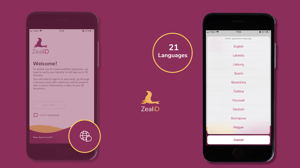At last: The Swedish Companies Registration Office makes Internet history
Today, the Swedish Companies Registration Office has taken perhaps the biggest step ever towards digitalisation, digital inclusion and validatable electronic signatures. As of Oct 15, they accept company documents to be submitted in pdf form ONLY IF they are signed with a qualified signature. This means that it is not possible to sign with e.g. BankID.
ZealiD was one of the first to test the service: attached is a pdf with screenshots showing how filing is done (sorry Bolagsverket for the test submission - we couldn’t help ourselves).
A qualified signature is Sweden’s and the EU’s highest signature, the Swedish administration is obligated to accept it under Swedish law (eIDAS regulation) and it has qualities that solve big problems for a lot of people. When a qualified signature is applied to a pdf, magic happens:
- All authorities throughout the EU have to accept the document/signature as an original document that has been signed in person (e.g. courts, authorities, etc). Forget attestations and transcripts!
- It is valid as a remote identification method (AML KYC throughout the EU).
- Anyone can validate the signatures (e.g. with the EU’s free tool DSS reader or Adobe reader). Just upload a pdf and look at the signature pane and you will get the name and personal identifier of the signatories.
- Only specific qualified trusted service providers can offer users to create qualified signatures after authorisation by public authorities (PTS in Sweden and EU Trusted list).
- You can create a qualified signature with a mobile app in less than 10 minutes - for free.
The Swedish Companies Registration Office has been incredibly slow with the new service unfortunately in our opinion still violates Swedish law (eIDAS art 27) in that it requires an eID signature to submit a pdf with a qualified signature (like asking for a driver's license to show a Passport).
Presumably, the demand for qualified signatures will grow exponentially and we will see other authorities follow suit. My insider tip is that advanced signatures have outlived themselves when the creation of qualified signatures is done on a smartphone, they are available to anyone regardless of nationality, they are easily and securely obtained remotely without a banking relationship and they are legally accepted across the EU.
Because who wants a signature that is not accepted for all types of contracts/matters, is accepted differently depending on the country, does not securely identify the signatory of a contract or its content, does not regulate liability for misidentification or signature, and cannot be easily validated? Not the Swedish Companies Registration Office anyway....
Learn more:



